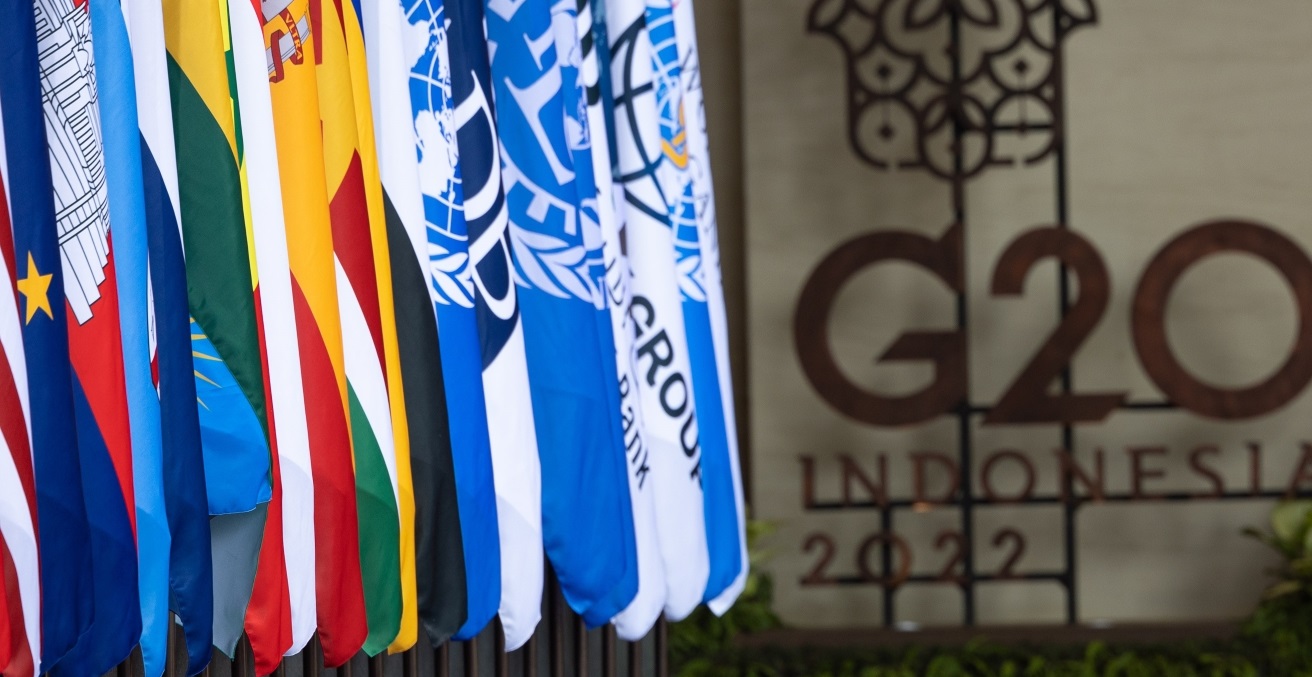The 2022 Asian Summits: Don’t Mention the War

It was meant to be Southeast Asia’s time in the sun this summit season. Events have transpired to rain on the parade of this fast-rising region.
Cambodia hosted the ASEAN and Related Summits on 11-13 November. Indonesia is currently hosting the G20 Summit in Bali on 15-16 November. Thailand will host the APEC Economic Leaders’ Meeting on 18-19 November 2022.
The Southeast Asian hosts of three major November Leaders Summits took the unprecedented step of issuing a joint press release back in May 2022, extolling the importance of the processes and urging cooperation. Why? Because things were looking bleak as several nations threatened a boycott of the summits due to the Russian invasion of the Ukraine. Conflict was threatening the carefully prepared agendas and tradecraft of the host nations.
It was meant to be Southeast Asia’s time to lead in a Western-dominated global governance landscape while the region faced serious challenges of its own with conflict in Myanmar, tension in the South China Sea, and economic collapse in Sri Lanka. The press release concluded:
As Chairs of these important meetings this year, we are determined to work with all our partners and stakeholders to ensure a spirit of cooperation, as we in Southeast Asia continue to strengthen ASEAN centrality, credibility and relevance in maintaining peace and stability in our regional and global endeavours.
What is not mentioned but has clearly precipitated this press release is Russia, and how Russia’s invasion of the Ukraine has disrupted the preparatory meetings leading to the summits. Every headline has been about whether Russian President Vladmir Putin should come to Southeast Asia, instead of progress on the agenda for each summit, which the chairs carefully reiterate in their press releases.
On paper at least, Russia was all set to participate in this year’s G20, APEC, and “ASEAN-plus” summits in Asia at the leader level, but in the end Putin chose not to come. The disagreements over the terms of Russia’s participation or non-participation in Asia-Pacific summitry in 2022 are revealing in the way they have played out in the region under pressure from the West.
In the end, will this summit season be viewed as displaying Southeast Asia’s centrality, credibility, and relevance? Most leaders have at least attended the summits.
Indonesian President Joko Widodo noted to G20 leaders that it took “extraordinary efforts” to get everyone together in the same room. At the last minute, Putin finally confirmed he would not be attending any of the summits and Sergey Lavrov, the foreign minister, would be attending in his stead. Dmytro Kuleba, the Ukraine foreign minister, attended the East Asia Summit, and President Volodymyr Zelensky appeared by video to address leaders, pointedly calling the meeting the “G19” as Lavrov walked out. Western leaders may still walk out of the meeting when Russia addresses the group, and the Leaders Declaration will face a difficult negotiation on what is to be released.
Widodo today asked the G20 to respect international laws and avert a “cold war.” While never mentioning Ukraine or Russia by name, Widodo called for the war to end and for leaders to be “responsible” and refrain from creating “zero-sum situations.” He stated further: “We should not divide the world into parts. We must not let the world fall into another cold war.”
Summit season: The Putin dilemma
The Putin dilemma seemed likely to affect the G20 the most. APEC is a unique forum for economies, rather than states. ASEAN’s core membership is Southeast Asian nations, with Russia as a dialogue partner, albeit an important one. ASEAN countries are not as directly affected thus far by the conflict in Ukraine and have lagged behind other UN members in voting against Russia in the General Assembly. Few have followed the West in imposing sanctions. Indonesia has avoided sanctions so far, but did vote against Russia in the General Assembly and Security Council. Notably, Indonesia abstained in the crucial last vote on 7 April on whether to exclude Russia from the UN Human Rights Council.
But the G20 is the leading global economic forum, and Russia is a key member. The G7 suspended Russia from the G8 due to its invasion of Crimea in 2014, and then Russia chose to walk away from it in 2017. But the G20 is a different proposition due to its wider membership, including the other members of the BRICS (Brazil, Russia, India, China, and South Africa). The G20 has no secretariat, so the current host works in a troika with the previous and future hosts – in this case Italy and India. It may not be in the host’s gift to disinvite a current invitee: there is no precedent for such a move, and it did not occur in the G20 at the time when Russia was kicked out of the G8. Presumably, it may require a unanimous vote of the full membership other than Russia. But it is clear that the host is allowed to invite a selection of guests, which allowed President Widodo to invite President Zelensky to Bali.
The theme of Indonesia’s G20 Presidency is “Recover together, recover stronger,” with the three pillars of Global Health Architecture, Sustainable Energy Transition, and Digital Transformation. Indonesia expected to showcase its leadership on ensuring equitable access to COVID-19 vaccines and promoting sustainable and inclusive economic development through micro, small, and medium enterprises participation, and reforms to the digital economy. Instead, G20 headlines all year have focused on walkouts from finance ministers meetings and pressure on President Widodo to disinvite Putin.
The hosts have had no choice but to turn mediator. Indonesian academics Erza Killian and Aswin Ariyanto Azis note that this move could underline Indonesia’s experience as a regional facilitator and mediator in Southeast Asian conflicts and its image as a greater mediator for the group’s polarisation.
Is further turmoil on the cards?
The question for the G20 summit is now not about Putin’s attendance, but whether it can be successful at all due to the disruptions this year. Sri Mulyani Indrawati, the Indonesian Finance Minister, had to admit that after the walkout at the G20 Finance Ministers meeting in April in Washington DC, Bali was not going to be “business as usual,” but rather a “very dynamic and challenging” event. The finance ministers and central bank governors failed to agree on a communique, a unique event, and one which does not bode well for the Leaders Summit. Germany had to use all of its power to get former US President Donald Trump over the line at the Hamburg Summit to release a Leaders Declaration in 2017. This time the task is far more difficult for Indonesia, and it has less experience as a host, although this is Jokowi’s eighth time attending the G20 summit as a leader.
Already much of the advantage the G20 presidency, in terms of showcasing Indonesia’s soft and hard powers, has been lost. Former Foreign Minister Marty Natalegawa has remarked, perhaps as a result, that this was a time for leadership and the global need for a “third voice,” pressuring Widodo to look beyond a domestic re-election agenda and a trade/tourism focus.
Global governance has red lines, and Russia has crossed them. Southeast Asian leaders stepping into global leadership need to recognise the bigger stage and the signals they send to the region and others. At the same time, Southeast Asia also deserves its moment to lead.
Professor Susan Harris Rimmer is Director of the Policy Innovation Hub at Griffith University and member of the Griffith Asia Institute.
This article is published under a Creative Commons Licence and may be republished with attribution.





